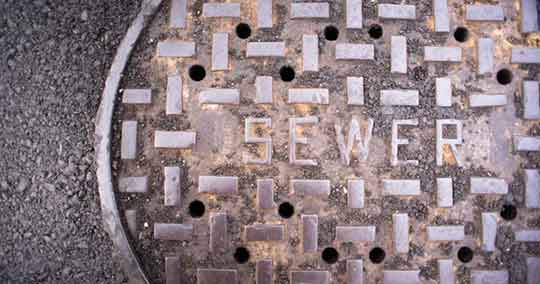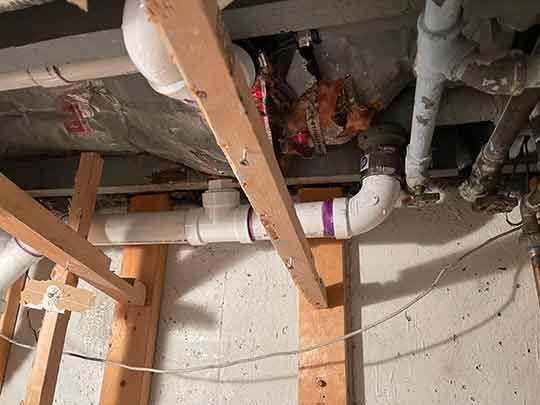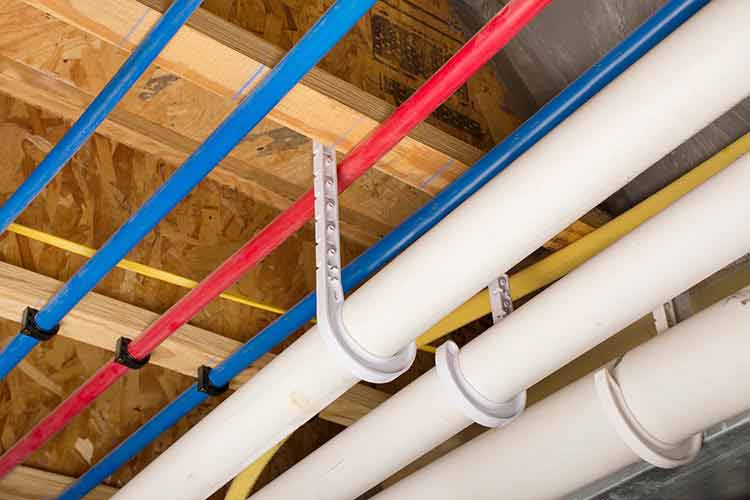
Overhead sewer systems are types of plumbing systems used in residential and commercial buildings to manage waste and sewage. Unlike other plumbing systems that use gravity to move wastewater, an overhead sewer system uses a pump to push waste uphill to the main sewer line. In this article, we will explore how overhead sewer systems work, including their benefits, components, and installation.
Benefits of Overhead Sewer Systems
Overhead sewer systems offer several benefits over traditional gravity-based systems, including:
- Prevention of basement backups: Overhead sewer systems can prevent basement backups that can result from heavy rain or sewer line blockages. The pump in an overhead sewer system can push wastewater out of the basement instead of allowing it to back up and flood the basement.
- Reduced risk of sewer gas buildup: In traditional gravity-based systems, sewer gas can accumulate in the lower levels of the building, resulting in unpleasant odors and potential health hazards. With an overhead sewer system installation, the wastewater is pumped out of the basement, reducing the risk of sewer gas buildup.
- Increased capacity: An overhead sewer system can handle more wastewater than a traditional gravity-based system, making it ideal for larger, more complex buildings.
Components of an Overhead Sewer System
An overhead sewer system consists of several components, including:
Sump pit
A sump pit is a basin located in the lowest part of the basement. It is designed to collect wastewater and then pump it out of the basement to the sewer line.
Sump pump
A sump pump is a mechanical device that pumps wastewater from the sump pit to the sewer line. It is typically powered by electricity and has a float switch that activates the pump when the water level in the sump pit reaches a certain level.
Check valve
A check valve is a one-way valve that prevents wastewater from flowing back into the sump pit. It is typically located in the discharge pipe between the sump pump and the sewer line.
Backup power supply
In the event of a power outage, having a battery backup installed can ensure that the sump pump continues to operate, preventing basement flooding and sewer backups.

One of the advantages of an overhead sewer system is that it can handle large volumes of wastewater. This makes it ideal for buildings that have a lot of fixtures or that generate a lot of wastewater.
How Overhead Sewer Systems Work
The operation of an overhead sewer system is relatively simple. Wastewater from the toilets, sinks, and other fixtures in the building is collected in the sump pit. Once the water level in the sump pit reaches a certain level, the sump pump is activated. The pump then pushes the wastewater through the discharge pipe and into the main sewer line.
One of the advantages of an overhead sewer system is that it can handle large volumes of wastewater. This makes it ideal for buildings that have a lot of fixtures or that generate a lot of wastewater.
Installation of Overhead Sewer Systems
Installation of an overhead sewer system typically involves the following steps:
Inspection and assessment
A professional Chicago plumber will inspect the building to assess the existing plumbing system and determine the best location for the sump pit and pump.
Excavation
Excavation will be necessary in order to create the sump pit and discharge pipe. This may involve breaking through the basement floor and digging a hole for the sump pit.
Installation of components
Once the excavation is complete, the sump pit, sump pump, check valve, and backup power supply will be installed.
Electrical work
The sump pump and backup power supply will need to be wired into the building’s electrical system.
Testing
Once the installation is complete, the system will be tested to ensure that it is working properly. This may involve flushing several toilets at once to simulate heavy use and ensure that the pump can handle the volume of wastewater.
To Sum It Up
In conclusion, an overhead sewer system is an effective and efficient way to manage wastewater in homes and larger buildings in Chicago, preventing basement flooding and sewer backups while reducing the risk of sewer gas buildup. Understanding the benefits, components, and installation process can help property owners make informed decisions about their plumbing systems, ensuring the safety and comfort of their occupants.
—
